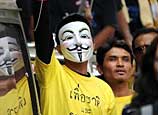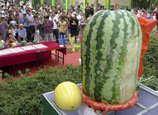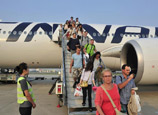
The situation in Syria continues to seize the world's attention as Britain and Russia met on Sunday, setting the tone for the Group of Eight (G8) summit starting Monday.
With the government getting the upper hand in the conflict, analysts believe the stalemate will last longer as the international community's influence on the country is still uncertain.
"Though the weapons of the government forces are much better than the rebels' and they are more organized, the prolonged battle will distract the government forces, which might affect its combat ability," Jin Liangxiang, a research fellow with the Department for West Asian and African Studies at the Shanghai Institutes for International Studies, told the Global Times on Sunday.
"Foreign military aid is also a huge variable element which might break the stalemate. The US and some European countries would probably provide military aid to the rebels," Jin said, adding that there are three possible ways for outside forces to interfere in Syria: providing weapons, setting up a no-fly zone and direct military intervention.
British Prime Minister David Cameron and Russian President Vladimir Putin will seek to forge a consensus on how to deal with Syria when Cameron hosts the leaders of the world's most industrialized nations in Northern Ireland from Monday.
As tensions rise over a conflict that has cost more than 90,000 lives, Putin will follow his talks with Cameron at Downing Street on Sunday by meeting President Barack Obama at the G8 summit on Monday, AFP reported.
Cameron held a teleconference on Syria with Obama, French President Francois Hollande, German Chancellor Angela Merkel and Italian Prime Minister Enrico Letta on Friday.
Washington has upped the ante on Syria by vowing to send military aid to rebel forces trying to unseat President Bashar al-Assad after saying it had proof that the regime had crossed a "red line" by using chemical weapons on a small scale, according to AFP.
Russia, however, on Saturday called a resolution on Syria approved by the UN Human Rights Council "biased and counterproductive."
"It is aimed against the Syrian government and ignores the crimes which the radical opposition committed," the Russian foreign ministry said in a statement.
"Behind the war between the Syrian government and rebels is a proxy war. The arguing between America and Russia and the fighting between Sunni and Shiite are hidden behind the war," He Wenping, director of African Studies at the Chinese Academy of Social Sciences, told the Global Times on Sunday.
Leaders in the Middle East have also stated their stances.
A Syrian official source slammed the decision of Egyptian President Mohamed Morsi to cut off diplomatic relations with Damascus as "irresponsible," according to the Xinhua News Agency.
A day earlier, Morsi said he had decided to cut off all diplomatic ties with Syria and close the Syrian embassy in Cairo. He also urged Western powers to impose a no-fly zone in Syria.
"The new Egyptian government is taking more political considerations in breaking off diplomatic relations with the Syrian government. The new Egyptian government used to be the rebels and took power by being against the Mubarak government. Supporting the rebels is confirming the legitimacy of the new Egyptian government," Jin said.
King Abdullah II of Jordan said on Sunday Jordan is ready to take necessary measures to protect itself if the Syrian crisis starts to threaten the kingdom, Xinhua reported.
Iran will send 4,000 Revolutionary Guard troops to Syria to support Assad's forces after US announce their support to the rebels, the Independent reported on Sunday.
"International and civilian factors would work mutually in Syria. It is certain that who emerges victorious between the Syrian government and rebels would determine the result of the Syrian situation. But international elements could influence the result and may be dominant," He said.
China hopes that the UN Independent International Commission of Inquiry on Syria will be fair and objective in investigating the alleged use of chemical weapons in Syria, a foreign ministry spokeswoman said on Friday.
"Unlike Russia or America, China doesn't have much geopolitical interest in Syria. China is against foreign intervention and doesn't want the Libya model to turn up again," He said.
Liu Yunlong and agencies contributed to this story
















 Developer razes historic Guangzhou structures
Developer razes historic Guangzhou structures


![]()
